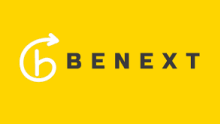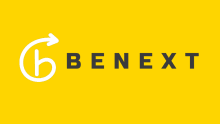BeNext Radio Show - Episode 6: Recruitment and Hiring

A new era began when COVID hit last year and affected all of our daily lives. Many of us in the recruitment and talent acquisition sphere shifted to a totally virtual workflow virtually overnight to adapt to the unforeseen change in circumstances. That’s why - when we were building the BeNext Talent Magnet: Hiring & Onboarding program, we went to companies that were already remote pre-COVID to find out about how their recruitment and hiring processes have evolved as well as the opportunities in today’s remote acquisition and onboarding."
- Download the episode through Spotify here.
- Download the episode through Google here.
- Download the episode through Apple here.
One such business was the open DevOps company GitLab, a software company that has been remote from their outset. This latest episode of the BeNext Radio Show features an interview with GitLab’s Diversity & Inclusion Partner, Liam McNally. Based in Sydney, Liam has been with GitLab since Jan 2019. In his role as Diversity and Inclusion Partner, Liam is responsible for Diversity, inclusion and belonging (DIB) initiatives to ensure that employees from every group can have their voices heard and listened to, as well as provide opportunities for allies to engage with groups and learn.
Remote work as an accelerator of inclusion
First, Liam not only gives examples of what virtual recruiting and hiring looks like at GitLab, but also how the online space can be used to boost more inclusive practices and hire more diversely.
In this sense, GitLab is committed to “making sure everyone shines within the process.” In their interviews, for example, they include asynchronous tasks that appeal to the less extroverted candidates or use specific software requested by a deaf candidate. Another key practice GitLab is increasingly moving towards is having every team member interviewed by someone from an underrepresented group. This allows candidates not only to see “the full breadth of the inclusion and diversity” at GitLab, but also to bring about an understanding that, in Liam’s words, “the viewpoints of people and their diversity of thought of people is going to be different in terms of the candidate.”
How fast does it take to ‘belong’?
At its core, a great onboarding experience involves making someone feel that they belong - ideally as fast as possible. While consistency is important, what COVID did was make us realise standardizing these experiences is harder in a remote setting because those moments of spontaneity and connection afforded by the physical workspace are no longer a given. As Liam explains in the show, GitLab has iterated and experimented with their onboarding process, embracing tech and multimedia, creating buddy programs, dog-fooding their own product, scheduling coffee chats with members of the team, being a manager of one and much more.
Culture fit vs Culture add
While many companies talk about culture-fit, GitLab’s approach is built more around a values fit and culture adds. “We want culture adds. We don't want somebody that's going to fit the current mold of what makes a good team member. We want people that are going to add to the culture. We are really looking for people that show and extend our values and are able to display those behaviors,” Liam says. The concept of ‘adding’ rather than ‘fitting’ gives more range, potentially innovating and growing better as people not by remaining the same but learning from differences.
So, it seems there is much more to virtual recruiting and onboarding than it might first appear. Rather than a challenge to be negotiated around, virtual recruiting and hiring presents immense opportunities to personalise the process, expose new hires to every aspect of the company, and build around values rather than simply fitting into a rigid, already-set culture. It also remains to be seen how newly-hybrid teams will embrace these opportunities.
The program on recruitment & hiring - Talent Magnet: Recruitment & Onboarding - is running currently and will return again in August. For more information on our programs, visit us at BeNext.






